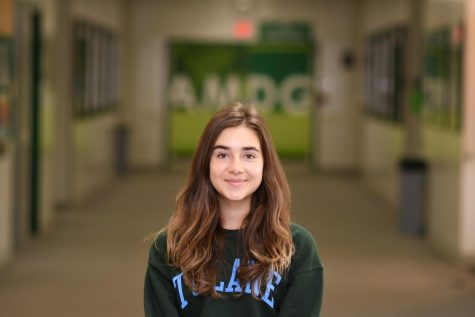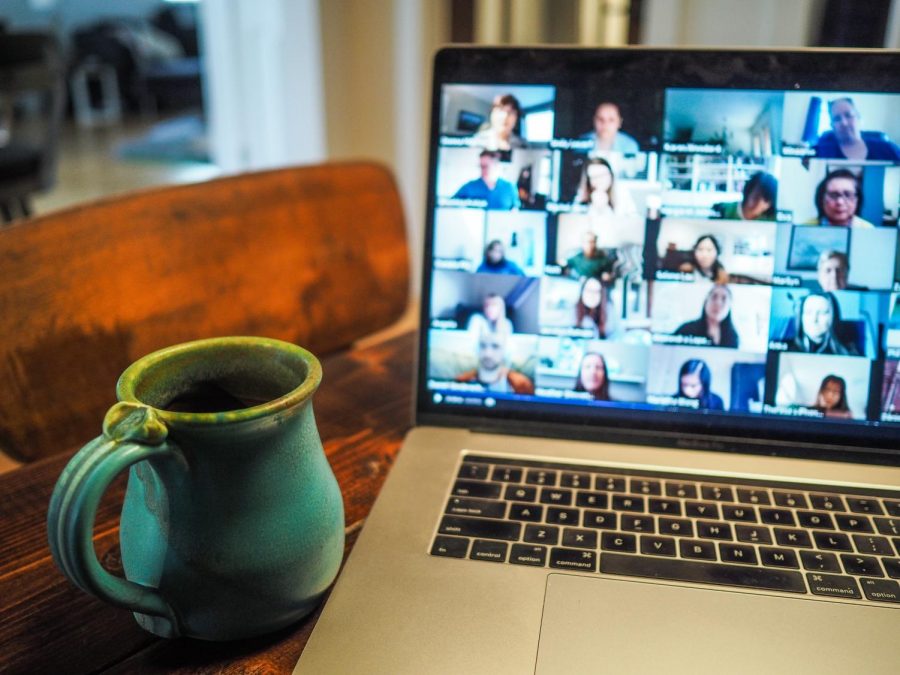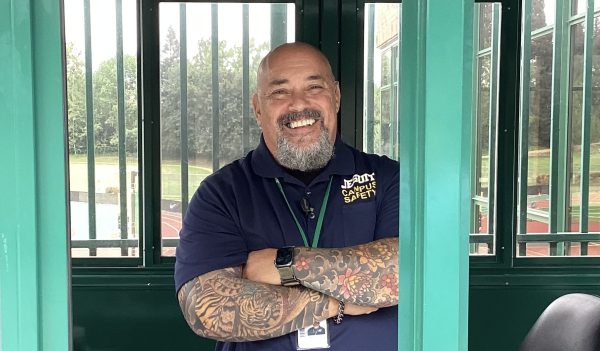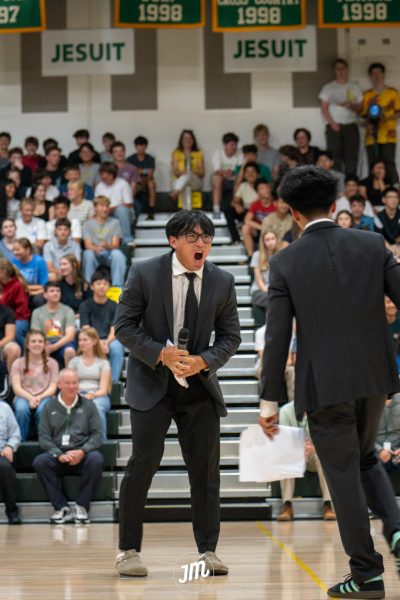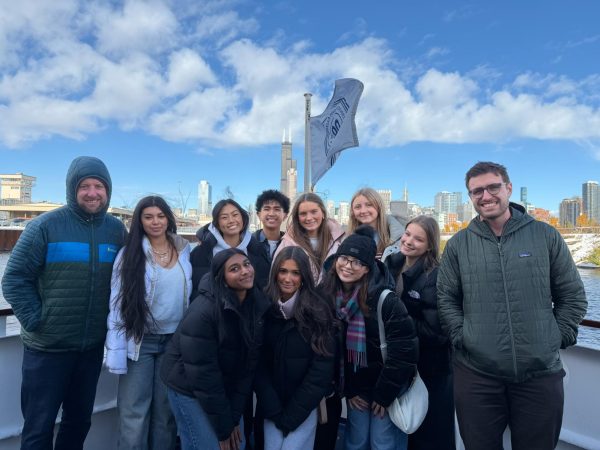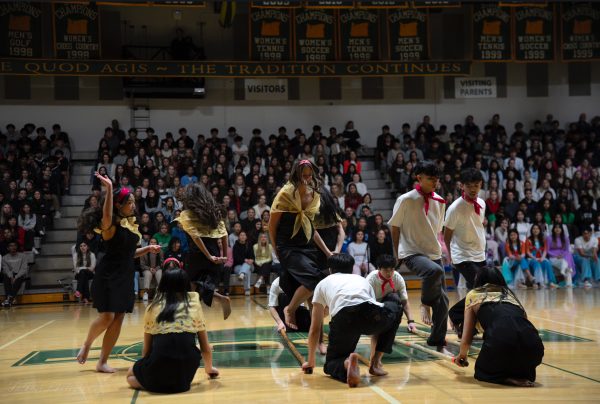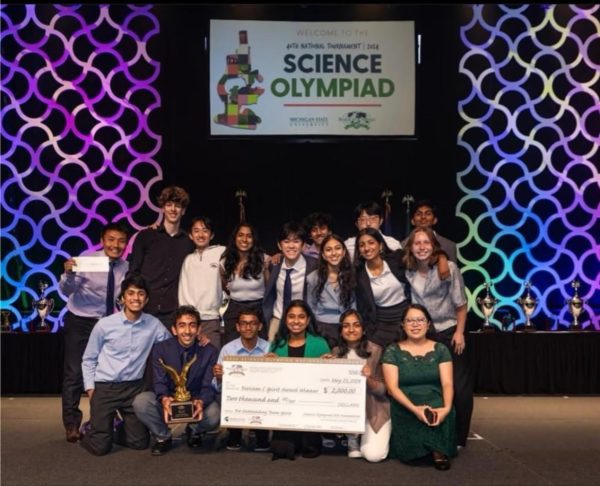JDOCA Workshops: Interview with Mental Health Awareness Club
Zoom setup for JDOCA
On Wednesday, March 17, students participated in Jesuit Day of Community and Action. This inaugural event took place over Zoom and required students to attend three social justice workshops. Junior Jenny Duan, creator and leader of Mental Health Awareness Club, and Freshmen Vivian Nyguen, Mental Health Awareness club member, led a workshop called Candid Conversations and spoke highly of its execution.
The Candid Conversations workshop covered a variety of topics including, what is mental health, how to have conversations about yours and other people’s mental health, and how to implement self-care practices into your daily life.
Duang and Nyguen used the app Nearpod to present MHAC’s workshop and explained that this medium allowed for more engagement and interaction throughout their presentation.
“We used Nearpod, and we thought that it was the best way to present because we could incorporate slides and hands-on activities,” Duan said. “A nearpod allowed a lot of people to type in their responses to questions in an anonymous and less-invasive way then simply speaking up on Zoom.”
“As presenters, we were able to see how the audience was feeling and everyone has their own self-care, so we were able to get some insights on that,” Nyguen said. “The answers that we received were so good, they were so amazing. It was breath-taking. The thought that they put into answering was really good in how creative they were in making sure they were taking care of themselves. [It] was a beautiful thing to see.”
Due to Nearpod’s interactive nature, Duan states that audience participation reached “100% on every single question.”
“The people who were in the nearpod were actively engaging and being really vulnerable with their response, which we really appreciated,” Duan said.
Both Duan and Nyguen emphasized that it was important for the Mental Health Awareness Club to participate in JDOCA because mental health disorders and illnesses have become a systemic issue that especially affects young adults.
“Mental health is something that is really important to social justice,” Duan said. “It affects the experiences of people’s everyday lives and not many people are aware of how to advocate or how to stand up and learn about mental health, which is why it’s so important to share it with the school and especially high school students who are affected by stress and the effects of Covid-19 on their academic and social lives.”
“I think the topic [mental health] is so vague,” Nyguen said. “It’s versatile, so it can be applied in so many different fields in terms of social justice. A lot of people are having a hard time dealing with discrimination, being accused, being persecuted, and that lowers their mental health tremendously [and] can lead to mental illness. Providing them with resources and lecturing them about the importance of how critical it is to take care of your mental health I think…was a tremendous choice.”
When asked about how mental health specifically relates to social justice, Duan and Nyguen said that it is about bringing awareness to how real mental health issues are.
“Having conversations about mental health reduces the social stigma, which allows for more people to seek resources about mental health, and it will be able to expand the reach of resources,” Duan said. “If no one talks about mental health, then there is going to be a lack of awareness within social and medical systems and there are not going to be people there to meet the needs of people who suffer from mental illness and other mental disorders. Again, this need is not going to be seen. Having these conversations opens up the space for dialogue.”
“I think one thing that we touched on that touched my heart is that mental injury is no more important than physical injury,” Nyguen said. “I think that a lot of people underestimate that, and they prioritize physical injury over mental health or mental illness.”
Both Duan and Nyguen’s favorite part of the workshop event was having the opportunity to connect with the students.
“People were being really vulnerable in their responses,” Duan said. “I think I really didn’t expect people to share everything. People were talking about how they felt scared to reach out to their friends because they thought they were going to be judged. They talked about specific struggles that they personally face and that was really touching and important to see because I was able to broadcast the responses on everyone’s screens, so all of participants were able to see what people anonymously were sharing. It was one of the most powerful things to engage with. It shows that everyone struggles and is going through more or less the same things.”
“Getting insights from people, being able to work together, and know that people are also interested in what you are interested in,” Nyguen said. “And then, having people actively participate and actively listen, showing that they are interested in this topic is really critical during this time.”
